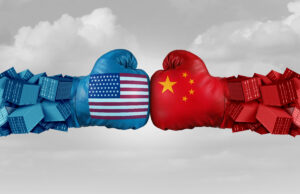I was recently contacted by someone putting together a doing business in Asia webinar asking me to speak on “choosing the location for your international business” within Asia. I declined the invitation because I do not have this expertise, but it got me to thinking about what I have seen of how our clients choose their business locations, which is something I often ask about.
The international lawyers at my law firm have worked with companies that have hired high-powered consultants, spent many hundreds of thousands of dollars and more than a year on their decision on where to locate. We have also worked with companies that went into Shanghai “because there are already so many Americans there” or went into another city simply because that city was where their best and most trusted Chinese contact lived. We have worked with companies that went into a particular city only because their competition did and they assumed their competition did all the right groundwork.
We have seen all of these methods work and we have seen all of these methods fail.
A manufacturing client once told me of how it had spent many months determining China was the place for them to build a new factory and then spent many more months compiling a list of the following factors to be used to determining the right China city (NOT in any order of importance)
- Human Resources
- English Language Skills
- Tax Benefits
- Import Quota/Duties for Equipment
- Import Quota/Duties for Material
- International Schools
- Physical Infrastructure
- Financial Infrastructure
- Facilities
- Transportation
- Electrical Utility (Quality and Cost)
- Vendor Support
- Government Support
- Cost of Living
- Quality of life
- Crime/Personal Safety
- Ease of getting in and out of the country
Many many years ago (you will be able to tell this from the numbers below) I had another client — a big manufacturing company with a large China presence that expanded its manufacturing into Malaysia. I asked why Malaysia and not Vietnam and got this reply:
Vietnam is a growing market for our customers, but the major players there are all US based companies with internal engineering capabilities. The Malaysian company with which we work is unique in that it is “homegrown.”
My opinion is that each country (or region) requires a different approach. For example, if my company were manufacturing clothing, China would be the place to be as you have cheap raw materials + local raw materials + cheap labor = profit + local demand. However, if you are manufacturing ___________, you have no local demand in China. For those items that have no local demand, I believe you really have to be careful in selecting where to locate an overseas plant. Too many companies fail in China because of this. They seem to forget the whole reason England (and others) tried to open China up (by force) to foreign firms was to sell to the Chinese.
Having said that, Vietnam is a good choice for a lot of companies. We work with two engineering firms based there. Is it true that Vietnam’s level of English is considerably higher than China’s?
I am really surprised other companies don’t have facilities here in KL [Kuala Lumpur]. Wages of workers in the manufacturing and service sectors in KL are very different from China. For these examples, I am using greater KL area. Outlying areas are much cheaper. Factory Workers in Malaysia make $160-$265 compared to $150-$300 in Shanghai. Hotel Waitresses (5 star) in Malaysia make $105-$215 compared to $40-$65 in Shanghai. Engineers in Malaysia make $215-$535 compared to $150-$375 in Shanghai. A 900 sq.foot condo in a new building in a KL suburb costs about $20,000 USD, with rent at about $530 per month. In Shanghai’s Baoshan District, you will pay around $30,000, but the rent would only be about $500 per month. Inside Shanghai’s ring road of Shanghai, the purchasing price goes way up, but rental costs top out at about $625.
Living costs obviously vary from place to place, but I think too many foreign companies look at only workers’ salary+benefits in deciding to enter the China market, when there are so many other factors influencing costs. Also, many US consumer goods manufacturers use salary for determining whether or not to market their products or services in a particular country and decide against China because of this. Dan, let me ask you a question. The Motorola RAZR cellphone is not cheap. Which country has bought more? The US or China. How is it possible for a person who earns 400 RMB/month (approximately $50) to own a telephone costing 3000 RMB (approximately $375)? For the most part, China’s disposable income cannot be tied to officially listed salaries.
As a lawyer, I cannot resist mentioning the role a country’s laws can play in determining its attractiveness to foreign investment. We have had clients that chose not to set up in Indonesia because of its employment laws. And we have had many IP sensitive clients choose countries other than China for fear of its own employees walking off with their IP.
There are few common themes in choosing a location for business beyond the big issues like cost, labor force quality, and access to markets. The factors one can and should use in choosing a business location are nearly limitless and the decision itself heavily depends on the company searching out the location and the reason for choosing a location in the first place. In other words, what is good for xyz company may not be good for you, which is why it is often a bad idea to go somewhere simply because some company you respect went there.
Lastly, there are the companies that choose a location for personal reasons, which happens a lot more often than people realize. Our firm represented an international tech company that was eventually bought out and moved, but when we represented them they were in Montana. I once asked its CEO why it was in Montana and he said, because my wife is from here and she will not go anywhere else. When it comes to choosing between Barcelona and Madrid for our Spain clients or between San Francisco and Seattle for our foreign clients locating in the United States, I would swear that at least 10 percent of the time the location decision is based on the CEO’s personal living preference.
How did your company choose its location(s)? How should companies choose their locations?
As always, comments are welcome.

























